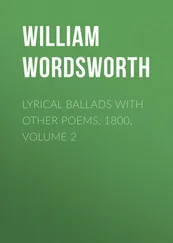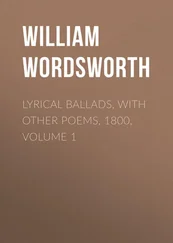Samuel Coleridge - Lyrical Ballads, With a Few Other Poems (1798)
Здесь есть возможность читать онлайн «Samuel Coleridge - Lyrical Ballads, With a Few Other Poems (1798)» весь текст электронной книги совершенно бесплатно (целиком полную версию без сокращений). В некоторых случаях можно слушать аудио, скачать через торрент в формате fb2 и присутствует краткое содержание. Год выпуска: 2005, Жанр: Поэзия, на английском языке. Описание произведения, (предисловие) а так же отзывы посетителей доступны на портале библиотеки ЛибКат.
- Название:Lyrical Ballads, With a Few Other Poems (1798)
- Автор:
- Жанр:
- Год:2005
- ISBN:нет данных
- Рейтинг книги:5 / 5. Голосов: 1
-
Избранное:Добавить в избранное
- Отзывы:
-
Ваша оценка:
- 100
- 1
- 2
- 3
- 4
- 5
Lyrical Ballads, With a Few Other Poems (1798): краткое содержание, описание и аннотация
Предлагаем к чтению аннотацию, описание, краткое содержание или предисловие (зависит от того, что написал сам автор книги «Lyrical Ballads, With a Few Other Poems (1798)»). Если вы не нашли необходимую информацию о книге — напишите в комментариях, мы постараемся отыскать её.
Lyrical Ballads, With a Few Other Poems (1798) — читать онлайн бесплатно полную книгу (весь текст) целиком
Ниже представлен текст книги, разбитый по страницам. Система сохранения места последней прочитанной страницы, позволяет с удобством читать онлайн бесплатно книгу «Lyrical Ballads, With a Few Other Poems (1798)», без необходимости каждый раз заново искать на чём Вы остановились. Поставьте закладку, и сможете в любой момент перейти на страницу, на которой закончили чтение.
Интервал:
Закладка:
"The first that died was little Jane;
"In bed she moaning lay,
"Till God released her of her pain,
"And then she went away.
"So in the church-yard she was laid,
"And all the summer dry,
"Together round her grave we played,
"My brother John and I.
"And when the ground was white with snow,
"And I could run and slide,
"My brother John was forced to go,
"And he lies by her side."
"How many are you then," said I,
"If they two are in Heaven?"
The little Maiden did reply,
"O Master! we are seven."
"But they are dead; those two are dead!
"Their spirits are in heaven!"
'Twas throwing words away; for still
The little Maid would have her will,
And said, "Nay, we are seven!"
LINES WRITTEN IN EARLY SPRING.
I heard a thousand blended notes,
While in a grove I sate reclined,
In that sweet mood when pleasant thoughts
Bring sad thoughts to the mind.
To her fair works did nature link
The human soul that through me ran;
And much it griev'd my heart to think
What man has made of man.
Through primrose-tufts, in that sweet bower,
The periwinkle trail'd its wreathes;
And 'tis my faith that every flower
Enjoys the air it breathes.
The birds around me hopp'd and play'd:
Their thoughts I cannot measure,
But the least motion which they made,
It seem'd a thrill of pleasure.
The budding twigs spread out their fan,
To catch the breezy air;
And I must think, do all I can,
That there was pleasure there.
If I these thoughts may not prevent,
If such be of my creed the plan,
Have I not reason to lament
What man has made of man?
THE THORN.
I.
There is a thorn; it looks so old,
In truth you'd find it hard to say,
How it could ever have been young,
It looks so old and grey.
Not higher than a two-years' child,
It stands erect this aged thorn;
No leaves it has, no thorny points;
It is a mass of knotted joints,
A wretched thing forlorn.
It stands erect, and like a stone
With lichens it is overgrown.
II.
Like rock or stone, it is o'ergrown
With lichens to the very top,
And hung with heavy tufts of moss,
A melancholy crop:
Up from the earth these mosses creep,
And this poor thorn they clasp it round
So close, you'd say that they were bent
With plain and manifest intent,
To drag it to the ground;
And all had joined in one endeavour
To bury this poor thorn for ever.
III.
High on a mountain's highest ridge,
Where oft the stormy winter gale
Cuts like a scythe, while through the clouds
It sweeps from vale to vale;
Not five yards from the mountain-path,
This thorn you on your left espy;
And to the left, three yards beyond,
You see a little muddy pond
Of water, never dry;
I've measured it from side to side:
'Tis three feet long, and two feet wide.
IV.
And close beside this aged thorn,
There is a fresh and lovely sight,
A beauteous heap, a hill of moss,
Just half a foot in height.
All lovely colours there you see,
All colours that were ever seen,
And mossy network too is there,
As if by hand of lady fair
The work had woven been,
And cups, the darlings of the eye,
So deep is their vermilion dye.
V.
Ah me! what lovely tints are there!
Of olive-green and scarlet bright,
In spikes, in branches, and in stars,
Green, red, and pearly white.
This heap of earth o'ergrown with moss
Which close beside the thorn you see,
So fresh in all its beauteous dyes,
Is like an infant's grave in size
As like as like can be:
But never, never any where,
An infant's grave was half so fair.
VI.
Now would you see this aged thorn,
This pond and beauteous hill of moss,
You must take care and chuse your time
The mountain when to cross.
For oft there sits, between the heap
That's like an infant's grave in size,
And that same pond of which I spoke,
A woman in a scarlet cloak,
And to herself she cries,
"Oh misery! oh misery!
"Oh woe is me! oh misery!"
VII.
At all times of the day and night
This wretched woman thither goes,
And she is known to every star,
And every wind that blows;
And there beside the thorn she sits
When the blue day-light's in the skies,
And when the whirlwind's on the hill,
Or frosty air is keen and still,
And to herself she cries,
"Oh misery! oh misery!
"Oh woe is me! oh misery!"
VIII.
"Now wherefore thus, by day and night,
"In rain, in tempest, and in snow,
"Thus to the dreary mountain-top
"Does this poor woman go?
"And why sits she beside the thorn
"When the blue day-light's in the sky,
"Or when the whirlwind's on the hill,
"Or frosty air is keen and still,
"And wherefore does she cry?—
"Oh wherefore? wherefore? tell me why
"Does she repeat that doleful cry?"
IX.
I cannot tell; I wish I could;
For the true reason no one knows,
But if you'd gladly view the spot,
The spot to which she goes;
The heap that's like an infant's grave,
The pond—and thorn, so old and grey,
Pass by her door—'tis seldom shut—
And if you see her in her hut,
Then to the spot away!—
I never heard of such as dare
Approach the spot when she is there.
X.
"But wherefore to the mountain-top
"Can this unhappy woman go,
"Whatever star is in the skies,
"Whatever wind may blow?"
Nay rack your brain—'tis all in vain,
I'll tell you every thing I know;
But to the thorn, and to the pond
Which is a little step beyond,
I wish that you would go:
Perhaps when you are at the place
You something of her tale may trace.
XI.
I'll give you the best help I can:
Before you up the mountain go,
Up to the dreary mountain-top,
I'll tell you all I know.
Tis now some two and twenty years,
Since she (her name is Martha Ray)
Gave with a maiden's true good will
Her company to Stephen Hill;
And she was blithe and gay,
And she was happy, happy still
Whene'er she thought of Stephen Hill.
XII.
And they had fix'd the wedding-day,
The morning that must wed them both;
But Stephen to another maid
Had sworn another oath;
And with this other maid to church
Unthinking Stephen went—
Poor Martha! on that woful day
A cruel, cruel fire, they say,
Into her bones was sent:
It dried her body like a cinder,
And almost turn'd her brain to tinder.
XIII.
They say, full six months after this,
While yet the summer-leaves were green,
She to the mountain-top would go,
And there was often seen.
'Tis said, a child was in her womb,
As now to any eye was plain;
She was with child, and she was mad,
Yet often she was sober sad
From her exceeding pain.
Oh me! ten thousand times I'd rather
That he had died, that cruel father!
Интервал:
Закладка:
Похожие книги на «Lyrical Ballads, With a Few Other Poems (1798)»
Представляем Вашему вниманию похожие книги на «Lyrical Ballads, With a Few Other Poems (1798)» списком для выбора. Мы отобрали схожую по названию и смыслу литературу в надежде предоставить читателям больше вариантов отыскать новые, интересные, ещё непрочитанные произведения.
Обсуждение, отзывы о книге «Lyrical Ballads, With a Few Other Poems (1798)» и просто собственные мнения читателей. Оставьте ваши комментарии, напишите, что Вы думаете о произведении, его смысле или главных героях. Укажите что конкретно понравилось, а что нет, и почему Вы так считаете.












